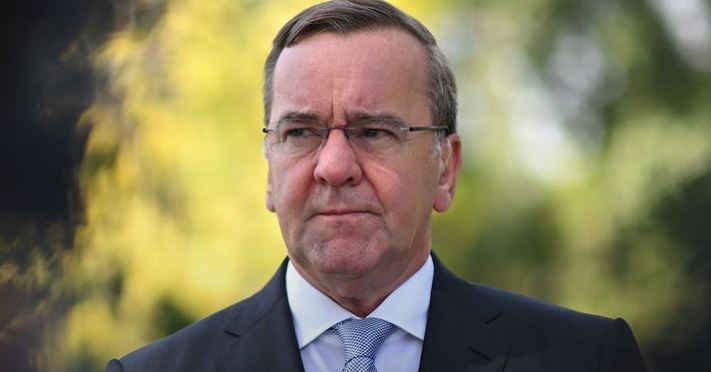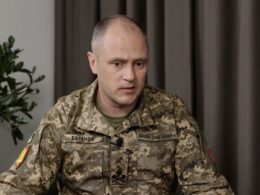According to German Defense Minister Boris Pistorius, as cited by N-TV, Russia is producing weapons and ammunition beyond the needs for the offensive war against Ukraine.
Pistorius stated on the ARD show “Maischberger” that with increasing military spending and an order for a war economy, “a large part or some of what is newly produced no longer goes to the front lines but ends up in the depots.”
He also warns of further military ambitions from Russian President Vladimir Putin. Pistorius remarked, “One could be naive and say he is doing this out of caution. I, as a more skeptical person, would say in this case, he is doing this because he might have something in mind or could have something.”
Earlier it was reported that Russia’s defense industry significantly increased its production output in 2023. This expansion included growing the workforce to approximately 3.5 million people, implementing increased shift patterns, expanding existing production lines, and bringing idle production capacity back into service.
While these efforts have led to a notable rise in production, a substantial proportion of this output comes from refurbishing and modernizing existing stocks rather than new production. For instance, the majority of main battle tanks produced in 2023 consisted of refurbished vehicles.
Artillery munition production also saw a sharp increase in 2023 and is expected to rise further in 2024. However, capacity constraints are likely to limit the growth in munition production over the next 12 months. Despite these limitations, the British Defense Ministry’s March 1 intelligence report suggests that while the defense industry may not fully meet the demands of Russian operations against Ukraine, it is almost certainly capable of delivering a material advantage over Ukraine throughout 2024.
The British Defense Ministry also reported, based on apparently leaked Russian finance documents, that Russia’s 2024 defense budget would increase to about $112 billion, around 6% of GDP, representing a 68% increase. This significant budget increase indicates Russia’s preparation for extended fighting.
A recent report by the Jamestown Foundation indicates limited growth in Russia’s defense industry output since 2022, with much of the apparent expansion stemming from cannibalizing stored systems. Despite these challenges, Russia’s efforts to bolster its defense industry output underscore its commitment to sustaining its military operations in Ukraine.
Several officials have issued warnings that Russia may be considering attacks on other NATO countries, prompting Latvia’s Foreign Minister, Krišjānis Kariņš, to emphasize the critical need for a sustained Western strategy to counter potential Russian aggression.
“Russia will not stop, Russia can only be stopped. Stopping Russia in Ukraine does not mark the end; it simply signifies that our efforts must continue. This underscores the importance for NATO to develop a long-term strategy aimed at containing Russia,” Kariņš emphasized to FT.
Against the backdrop of these warnings, Baltic states and Finland, situated on the frontline between NATO and the EU against Russia, are intensifying their alerts regarding Putin’s broader ambitions beyond Ukraine. Notably, Latvia, Estonia, and Lithuania are bolstering their military spending, aiming to reach 3% of GDP by 2027, which exceeds NATO’s 2% target, as reported by FT.
Ex-NATO official, Edward Hunter Christie, elaborated on the Russian threat in an interview for Euromaidan Press, highlighting various scenarios and strategic implications in the context of European security. Christie emphasized the need for Western leaders to move from an “escalation management” approach to one that effectively removes the Russian threat, emphasizing the critical importance of supporting Ukraine’s defense capabilities and ensuring a decisive response to any potential Russian aggression.
Read more:
UK intel: Sanctions continue to disrupt key inputs for Russia’s defense industry
Ukraine builds its own weapons to fight Russia
New model of kamikaze drones set for mass production in Ukraine after successful tests
Analyst: Russian oil money turning North Korea into “ideal military factory”








